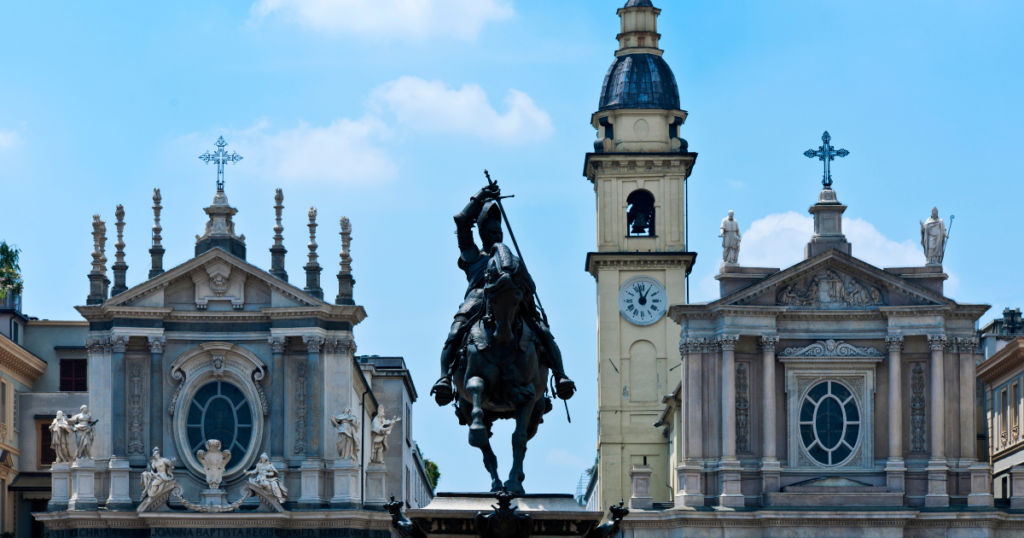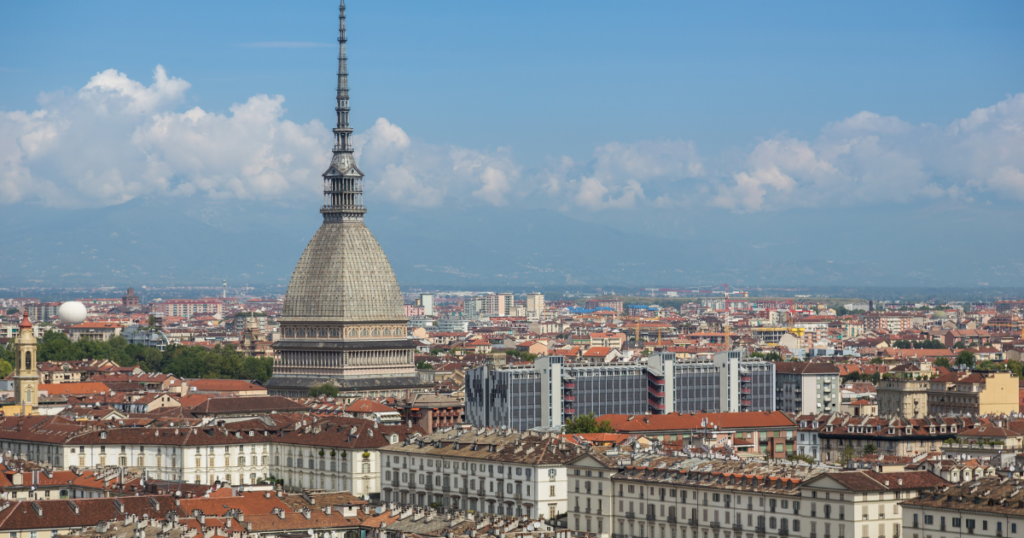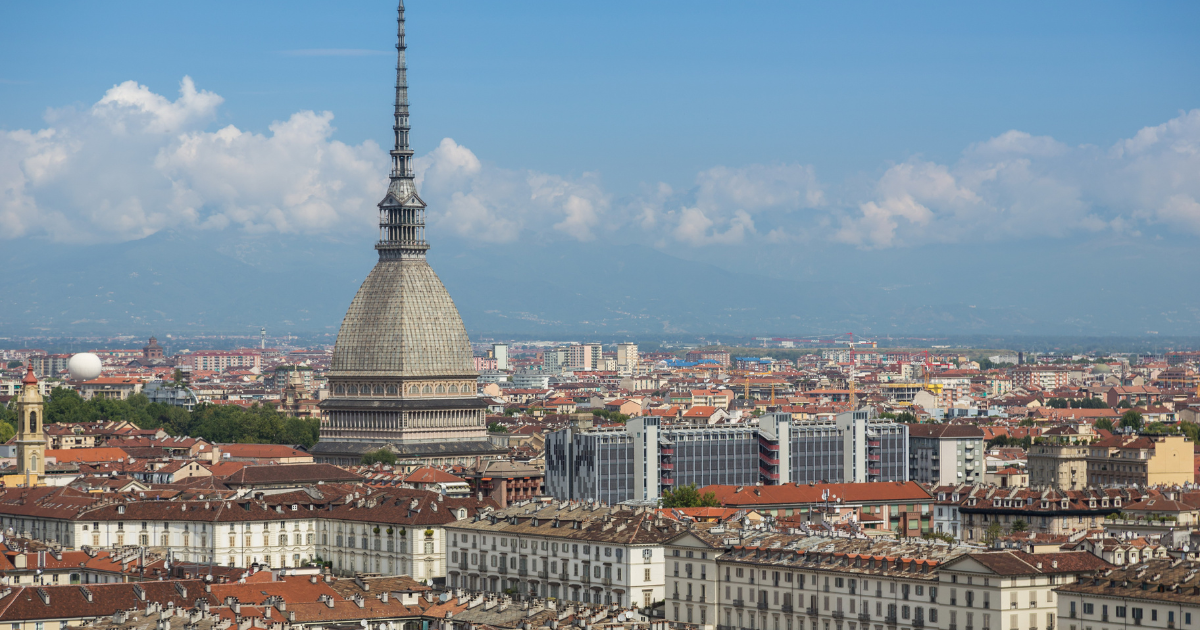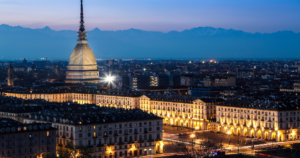Welcome to the enchanting world of Turin FAQ, a city that beckons you for a short weekend escape or an extended stay, rivalling the charms of Rome and Venice. Having called this gem home for six glorious years, I’ve fallen head over heels for Turin’s unique beauty.
Quick Answer: Is Turin worth visiting?
Yes,Turin is worth visiting for its royal palaces, museums, food culture, and its relaxed vibe. It is less crowded and more affordable than cities like Milan and Venice, making it ideal for travellers who what to experience culture, history, and authentic Italian life.
Picture this: In 2006, Turin underwent a magical transformation during the Olympic Games, shedding its industrial cloak to emerge as one of Italy’s most delightful cities. Beyond the world-class museums, Turin boasts royal residences, captivating squares, charming churches, and museums dedicated to cinema and automobiles.
Now, let’s dive into the heart of Turin FAQ that unravel the essence of this captivating city.

Everything You Need To Know About
Turin, or Torino as the Italians lovingly call it, is more than just a city—it’s an experience. Nestled in Piedmont along the Po River, this cultural and economic hub offers a tapestry of Renaissance, Baroque, Rococo, Neoclassical, and Art Nouveau architecture. Turin boasts public squares, castles, gardens, and elegant palaces dating from the 16th to the 18th centuries, with the iconic Palazzo Madama and the revered Shroud of Turin calling this city home.
The Alps grace its northwest horizon, while squares like Castello and San Carlo exude baroque charm. And don’t miss the National Cinema Museum housed in the 19th-century Mole Antonelliana Tower—a true interactive gem.
What is The History of Turin?
Founded 2400 years ago by the Celtic tribe Taurini, Turin weathered the storm of Hannibal’s Alpine campaign. The city rose from its ashes in the first century AD, with the Savoy family dynasty conquering it in 1280. Turin’s baroque splendour blossomed in the 17th century under Duke Emanuele Filiberto, cementing its place as one of Europe’s baroque treasures.
Is Turin Worth Visiting?
Absolutely yes! Turin is a symphony of Renaissance, Baroque, Rococo, Neo-classical, and Art Nouveau architecture. Public squares, castles, and elegant palazzi beckon you to explore this historical treasure trove.
Is it Safe to Live in Turin?
Yes, Turin is generally a safe city to live in. Violent crime is rare, and while pickpocketing can occur, most safety concerns are limited to busy tourist areas.Violent crime is a rarity, and while pickpocketing might occur, the city’s overall safety is commendable. Many expats and long-term residents report feeling comfortable living in central neighbourhoods of Turin.
Is Milan or Turin Better?
Choosing between Milan and Turin depends on personal preferences. Turin, often hailed as ‘the Paris of Italy,’ offers a unique blend of tradition, grandeur, and romance. Its architecture and illustrious past make it a top pick for those seeking a captivating historical experience. On the other hand, Milan boasts a cosmopolitan vibe and modern beauty, with its stunning contemporary architecture, vibrant fashion scene, and dynamic cultural offerings. Consider your preferences—Turin’s historical charm or Milan’s modern allure—when deciding which city suits your taste.
I have attached YouTube videos from my channel to this Turin FAQ blog post to give you a more detailed insight into life in Turin. I will be creating a YouTube Turin FAQ video in the future keep your eyes peeled for that.
Is Turin a Beautiful City?
Yes, Turin sure is a beautiful city. Having lived in Turin’s for six years, I can attest—it’s one of northern Italy’s most captivating cities. From elegant houses to historic squares, Turin is a visual feast.
The Safest City in Italy?
Turin, according to the 2018 Quality of Life ranking, boasts a secure environment. During my six years here, I’ve felt completely at ease in this welcoming city.
Turin is generally considered a safe city in Italy. However, safety can be subjective and may vary based on individual experiences and perceptions. It’s advisable to check the latest crime statistics, safety reports, or travel advisories from official sources such as local law enforcement agencies, government publications, or international safety organizations for the most current and accurate information.
Safety rankings can change over time, so it’s recommended to consult recent data to determine how Turin compares to other Italian cities in terms of safety.
Is Turin Good For Students?
Yes, Turin is good for students. The city offers affordable living costs, well-regarded universities, and a lively cultural scene that appeals to both Italian and international students. With a diverse range of courses, including specialities in fields like Military Strategy, Biotechnology, Restoration and Conservation, Medicine, Business, and Design, Turin attracts students from around the world. The city’s educational amenities, coupled with a relatively low cost of living, make it an ideal destination for those pursuing academic endeavours. The renowned Università degli Studi, along with other specialized institutions, contributes to Turin’s reputation as a fantastic hub for learning.
Turin offers students a vibrant and enriching experience beyond academic pursuits. Here are some additional aspects that make Turin appealing to students:
1. Cultural Attractions: Turin is rich in cultural heritage, boasting numerous art galleries, museums, and historical sites. Students have the opportunity to explore and immerse themselves in the city’s diverse cultural offerings.
2. Events and Festivals: The city hosts various events and festivals throughout the year, providing students with entertainment, networking opportunities, and a chance to experience the local culture and traditions.
3. Culinary Delights: Turin is renowned for its delicious cuisine. Students can indulge in local specialties, visit traditional markets, and explore a wide range of restaurants and cafes offering both Italian and international flavours.
4. Parks and Green Spaces: Turin features beautiful parks and green spaces, providing students with areas to relax, unwind, and enjoy outdoor activities. The Valentino Park, for example, is a popular spot for both locals and students.
5. Transportation System: The city has an efficient public transportation system, including buses and trams, making it easy for students to navigate the city and its surroundings.
6. Nightlife: Turin has a lively nightlife scene with numerous bars, clubs, and entertainment venues. Students can socialize, unwind, and enjoy the diverse nightlife options the city has to offer.
7. Historical Architecture: Turin boasts impressive architecture, including historic palaces, churches, and squares. Exploring these architectural wonders can be both educational and visually stunning for students.
8. International Community: The presence of students from around the world creates a diverse and inclusive community. This multicultural environment provides students with opportunities to learn about different cultures and perspectives.
9. Sports and Recreation: Turin has a strong sports culture, and students can engage in various recreational activities. Whether it’s attending a football match or participating in outdoor sports, there are plenty of options for staying active.
Is Turin Cheaper Than Milan?
My firsthand experience tells me that Turin is more budget-friendly than Milan. Explore the beauty of Turin without burning a hole in your pocket.
What Food is Turin Famous For?
Wine, cheese, chocolate, and truffles. The birthplace of solid chocolate, Turin’s Bicerin hot chocolate is a must-try.
How Big is Turin Italy?
With an area of 130.2 km², Turin may not be massive, but its history, culture, and charm make it larger than life.
Is Turin a Nice Place to Live?
Yes, living here has been a delightful journey. Low living costs, great weather (compared to Manchester), an efficient commuting system, and cultural attractions make Turin a nice place to call home.
What is the quality of life like in Turin for expats?
The quality of life in Turin is generally considered high, making it an attractive city for expats. Turin ranks 3rd among the best cities to live in Italy, indicating favourable living conditions. The city boasts a thriving economy, providing ample opportunities for residents to enjoy both a comfortable lifestyle and professional growth. With its laid-back atmosphere, living and working in Turin can be a rewarding experience for expatriates.
What Was The First Capital of Italy and Why?
Founded in 1861, Turin was the first capital of the Kingdom of Italy, steering Italian unification both militarily and politically.
Which Part of Italy is Turin in?
Turin, the capital of Piedmont, lies in northwestern Italy near the junction of the Po River, the Sanguine River, and the Dora Riparia River.

I hope that this Turin FAQ post is helpful. There’s a wealth of resources and posts available on this blog to make your experience visiting or living in Turin as smooth and enjoyable as possible.
Why is Turin Called Torino?
When bidding for the Olympics, Turin requested to be called “Torino,” embracing the name Italians use—a subtle request akin to calling Rome “Roma” or Florence “Firenze.”
How do You Get to Turin, Italy?
Turin has its own airport, Citta di Torino-Sandro Pertini, with flights to and from Europe. Alternatively, Milan’s airport is a couple of hours away.
How Many Airports Are in Turin?
Turin boasts two airports: Caselle Airport and Cuneo Levaldigi Airport.
How Much is a Taxi From Turin Airport to The City Centre?
Grab an official airport taxi for approximately 30€, treating yourself to a scenic 30-minute drive to Turin’s city Centre.
How Much is a Train From Milan to Turin?
Embark on a train journey from Milan to Turin, from 9.90 euros a budget-friendly way to explore the wonders of Turin.
Turin invites you to savour delicious dishes, traditional recipes, excellent wines, and the famous Gianduja chocolate against a backdrop of aesthetic charm. Whether you’re captivated by its epic history, rich culture, or breathtaking landscapes, Turin promises an unforgettable experience in the heart of northern Italy. Come, explore, and fall in love with Turin!
Well, I hope that this list of Turin FAQ has helped you gain a better insight into the city of Turin. I will be updating this list of Turin FAQ regularly so please check back here in the future. If you like this post you may also want to read a little about me and how and why I moved to Turin. Learn more Welcome to turin and beyond.
Comment below any Turin FAQ questions that I missed but you think that they will be helpful for others.





